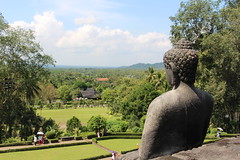I took a break from blog several years ago. I was in another country, overworked, sometimes working 18 hours a day 7 days a week, often insomniac, imbibed too much coffee, and generally troubled and unhappy. I couldn't focus my thoughts enough, or get them to a coherent string to write. Maybe there's something to this malaise of being unable to write for a long time.
There's also been my experimentation with social media. The more I get into the various platform, Twitter, Facebook, Instagram etc, the less I write. I pretend I was generating content on the other media, but as I truly examine my posts - often, I was merely reposting other people's stuff, and not creating my own. I wasn't articulating my true inner voice. But I have a sense that to write again, I need to read, again.
So many distractions these days, from reading. Just playing on my iPhone sucks the time away. But reading is so much a part of calming the mind. Why have I neglected my friends, my books?
I picked up Patti Smith's Just Kids last night. I bought it a while ago, full of inspirations, determined to read Patti Smith's lyrical prose, and about her profound friendship with Robert Mapplethorpe, about art, about being an artist. The pages were yellow, and spotted with yellow, the result of acid reactions on the paper.I bought it, and have left it unread for too long.
I'm a few pages in. Her writing lulls me into a state of quiet. The words are simple, but taut with memories, elegant even.
Much has been said about Robert, and more will be added. Young men will adopt his gait. Young girls will wear white dresses and mourn his curls. He will be condemned and adored. His excesses damned or romanticized. In the end, truth will be found in his work, the corporeal body of the artist. It will not fall away. Man cannot judge it. For art sings of God, and ultimately belongs to him.
